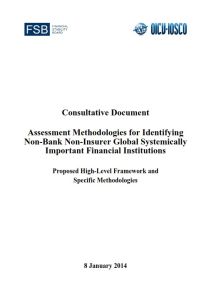Join getAbstract to access the summary!

Join getAbstract to access the summary!
Financial Stability Board
Assessment Methodologies for Identifying Non-Bank Non-Insurer Global Systemically Important Financial Institutions
Proposed High-Level Framework and Specific Methodologies
FSB, 2014
What's inside?
Shadow banking’s interconnectivity with the global financial system merits regulators’ careful consideration.
Recommendation
In this report, the Financial Stability Board (FSB) – consisting of the G20’s central bankers and finance ministries – explains how to identify global systemically important financial institutions that are neither banks nor insurance companies. The report’s imposing title belies its straightforward and well-informed examination of “shadow banking” and makes recondite subject matter relatively accessible. Because the Board’s report is consultative in nature and open to public comment, it poses additional questions as much to gauge regulators’ understanding of the issues as to generate additional critical thinking about them. getAbstract commends the FSB’s work, despite its wonkish tone, to regulators, policy makers, economists, financial practitioners and anyone with an interest in the world’s financial plumbing and its inherent risks.
Summary
About the Author
The Financial Stability Board globally coordinates national financial authorities and international bodies to promote effective financial regulatory and supervisory policies.
















Comment on this summary